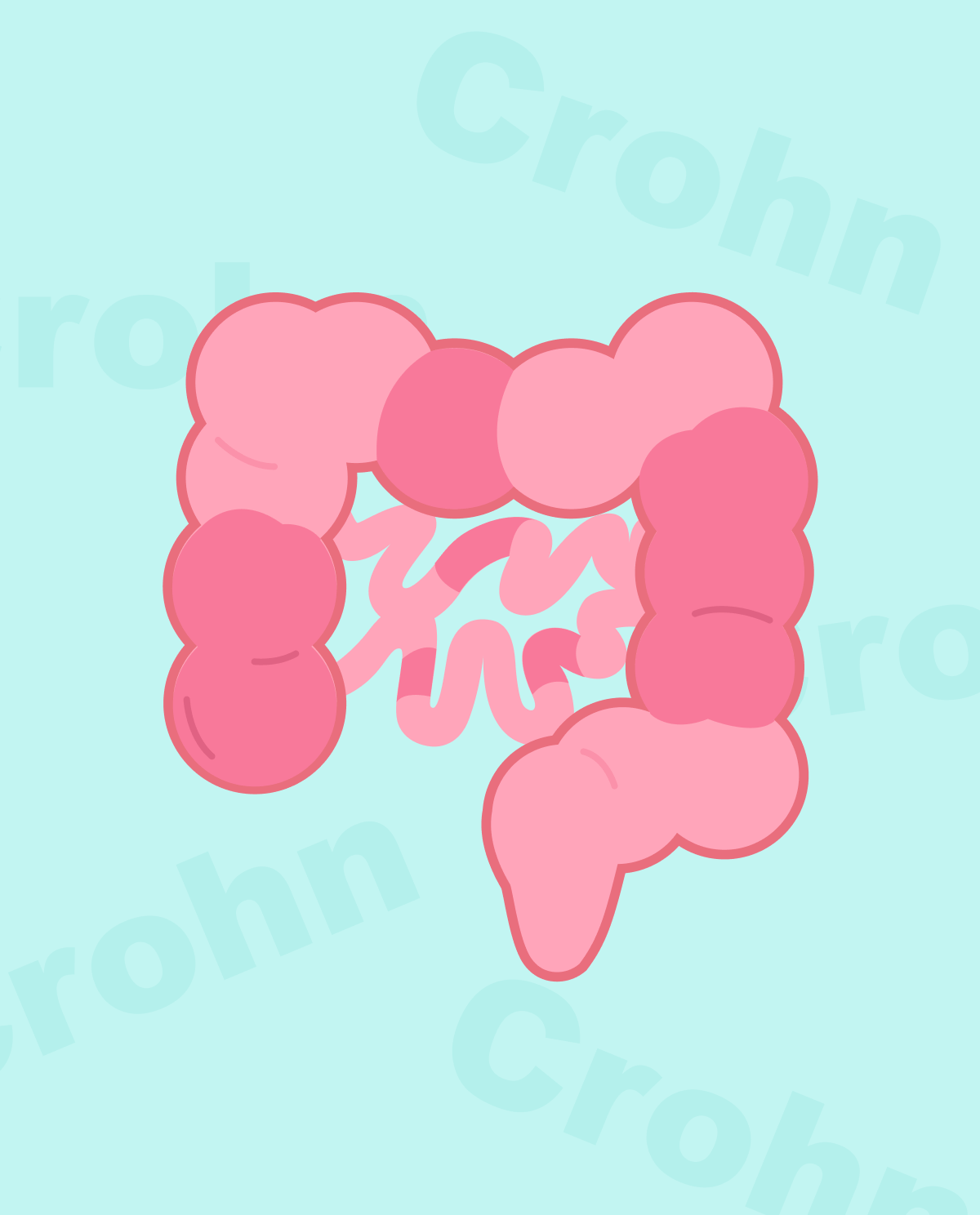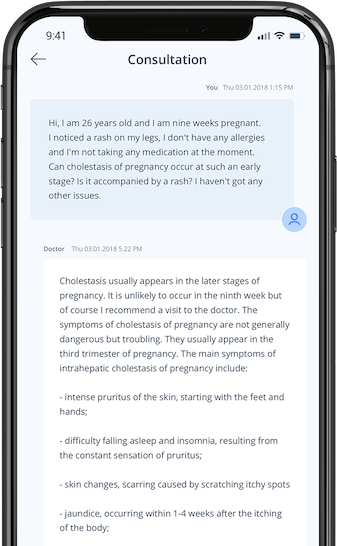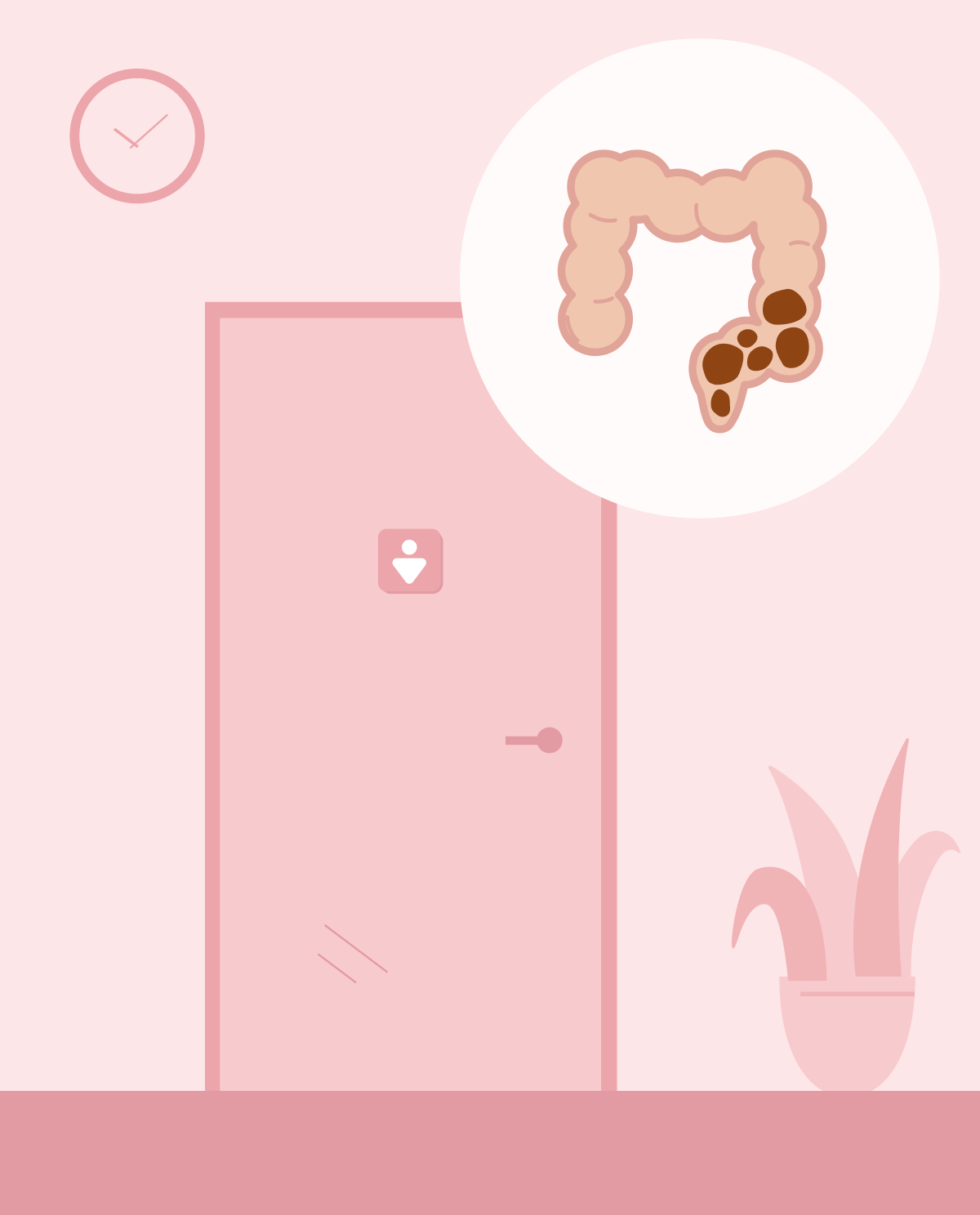Risk factors
- Age: although the illness can present at any age, it mostly occurs during early childhood. Most patients are diagnosed before the age of 30.
- Family history: it has been shown that 1 in 5 patients presenting with the illness has a first-degree family member with Crohn's.
- Ethnicity: although the disease can affect anyone, it has been reported of greater occurrence in Eastern European descent.
- Cigarette smoking: smoking has been widely established as a general health risk. The mechanism behind IBD development in smoking has been linked to mucosal damage and impaired immune responses.
Symptoms and complications
Symptoms associated with the illness
- bloody stool,
- cramping and abdominal pain,
- fever,
- diarrhea,
- fatigue,
- weight loss,
- other signs include but are not limited to joint and eye inflammation, kidney stones, iron deficiency, and delayed sexual development and growth in children.
Complications of Crohn's
- malnutrition,
- colon cancer,
- malnutrition due to symptoms resulting in vitamin B12 and iron deficiency,
- anal fissure resulting in painful bowel movement,
- fistulas (abnormal connections between different body parts),
- ulcerations,
- abscess formation,
- obstruction.
Diagnosis
Laboratory testing
- your GP might ask for a blood test to check for signs of anemia due to B12 and Iron deficiency,
- your GP might test for signs of inflammation by measuring inflammatory markers in the blood (C-reactive protein [CRP] and Erythrocyte sedimentation rate [ESR]) and liver function test,
- stool samples are frequently required to find blood or microorganisms which could mimic the signs of Crohn's.
Procedures
- colonoscopy and biopsy,
- MRI is usually used to assess pelvic disease and fistula,
- MR enterography uses contrast material to have a better view of the small intestine and is used to assess the progression of the illness,
- capsule endoscopy (The patient swallows a capsule with a camera. Pictures will be taken throughout the digestive tract. Although this test can point to a possible diagnosis, the colonoscopy and biopsy are needed for confirmation.
Treatment
Every Crohn's patient presents differently. No cure or treatment works for everyone. The goal of the medication prescribed is to reduce the signs and symptoms and improve the prognosis.
- Anti-inflammatory medication: Corticosteroids such as Budesonide and Prednisone are used short-term (3-4months) to induce remission. Corticosteroids are usually used in combination with immune suppressors to achieve a synergistic effect.
- Immune suppressors: mercaptopurine and azathioprine are the most widely used immune-suppressing drugs in IBD. Their use requires systematic follow-up with the physician for monitoring. Another well-known drug is methotrexate, this drug is used in patients that do not respond to the aforementioned medication.
- Biologic treatment: Vedolizumab, Infliximab, Ustekinumab, and Risankizumab are a class of treatments that target specific proteins made by the immune system and neutralize them to inhibit an immune response.
- https://doi.org/10.1016/j.cgh.2007.07.012
- https://doi.org/10.1016/S0140-6736(12)60026-9
- https://www.frontiersin.org/articles/10.3389/fimmu.2018.00074/full
- https://www.ncbi.nlm.nih.gov/pmc/articles/PMC4069044/
- https://synappsehealth.com/en/articles/i/colonoscopy-what-is-it-and-how-do-you-prepare-for-it/
- https://www.ncbi.nlm.nih.gov/pmc/articles/PMC3981266/








